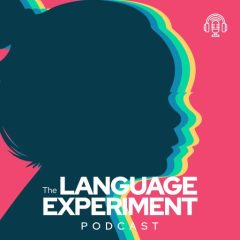In this week’s discussion, we’re diving deep into the incredible world of music and its profound impact on language learning and various aspects of life. As we’ve previously explored on our podcast, music isn’t just a universal language; it’s an ultimate tool for both teaching and learning languages. But did you know that its benefits extend far beyond language acquisition? In this episode, we’ll unravel the connections between music and language, sharing personal insights into how we integrate music into our daily lives with our kids.
The Multifaceted Connection Between Music and Language
Learning: It’s not just the catchy melodies that make music an effective language-learning tool. Research reveals that musicality levels, encompassing singing, instrument playing, and perceptive musical abilities, are remarkably linked to foreign language acquisition. This connection becomes even more profound when it comes to the development of phonetic and phonological skills. These overlapping brain areas, responsible for language and memory, work in harmony when learning through music. Beyond the neuroscientific perspective, consider the practical application of music. Children’s songs, for instance, delve into subjects like animals, colors, numbers, and emotions—topics that naturally resonate with young learners.
Harnessing the Power of Melody and Repetition: The magic of children’s songs lies not only in their narratives but also in repetition. Just think of classics like “Five Little Ducks,” with its repeating verses. These repetitive patterns not only captivate young minds but also enable effortless memorization. When we sing songs in a foreign language, we’re crafting sentences without conscious effort, enhancing our language skills organically. Even for adults, this technique bypasses traditional grammar-focused learning, bolstering vocabulary and expression. It’s a phenomenon where the melodies become bridges, connecting linguistic knowledge and active communication.
Fostering Bond, Teamwork, and Confidence Through Music: Beyond language acquisition, music forms strong bonds within families. We share how music binds us as a diverse family unit, transcending ages and linguistic backgrounds. Music isn’t solely a tool for language learning; it’s a medium that nurtures teamwork, coordination, and communication. Action songs engage both the young and the young at heart, fostering cooperation and teaching the essential value of teamwork. Moreover, music empowers children, boosting self-esteem and confidence. Our personal anecdotes shed light on how music nurtures emotional regulation, encouraging children to express feelings through melody and rhythm.
Conclusion: As we wrap up this enlightening episode, it’s clear that music is an indispensable element in our lives, enhancing language learning, family relationships, and emotional well-being. With a shared Spotify playlist packed with songs from our home countries, we’ve seamlessly woven music into our daily routine. From language acquisition to emotional expression, music serves as a multifaceted companion on our journey. As we encourage you to create your playlist and embark on this melodic adventure, remember that music’s benefits reach far beyond the realms of language learning—it’s a conduit to growth, connection, and shared joy.
Tune in to this episode of The Language Experiment and unlock the extraordinary potential of music in language learning and life. 🎵🌍
Don’t forget to subscribe, leave us a review, and share this episode with fellow language enthusiasts!
See you in the next one. 👋

Leave a comment